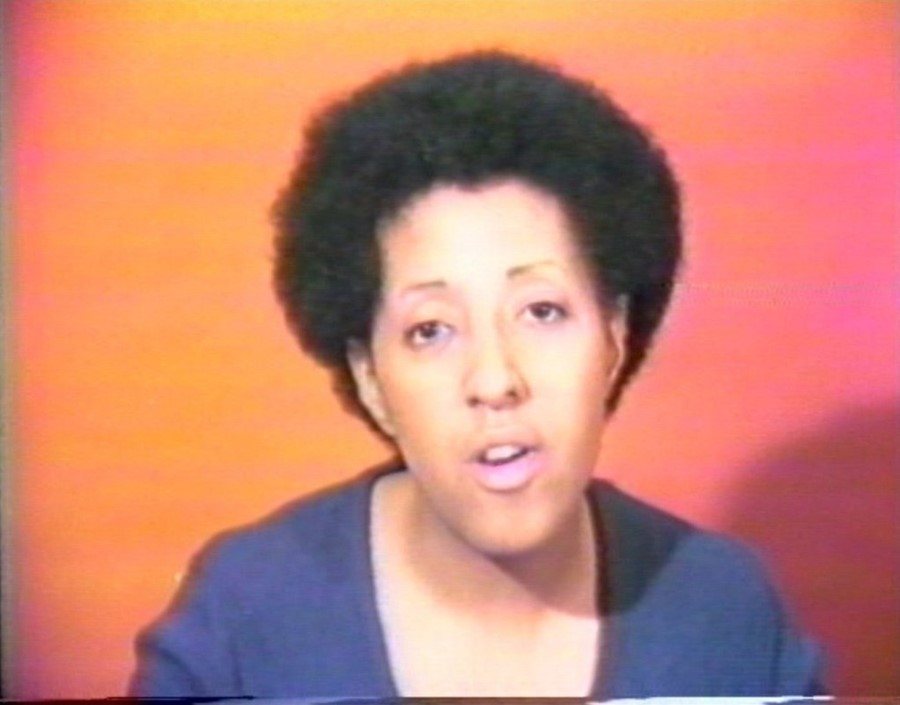Inspired by the 1980s performance piece of the same name, Free, White and 21 will present a series of films tackling contemporary issues surrounding race, youth culture and identity
“But then of course, I’m free, white and 21,” declared Howardena Pindell in her unflinching spoken word performance at New York’s Museum of Modern Art in 1980. In this deeply political short piece, the African-American artist speaks both as herself and in the disguise of a white, blonde woman, detailing the racial abuse and white privilege that she encountered from school to adulthood. And it is this deeply affecting performance which formed the inspiration for curator Jemma Desai’s evocative short film programme, also called Free, White and 21, which takes place as part of the London Short Film Festival this week.
“It’s a line that appears in Hollywood cinema a lot in the 1930s and 40s,” explains Desai, who will be hosting the event under her curatorial alias I Am Dora. “It’s a clear indicator of the inequalities in American society that underpin our discussions of Hollywood now, but it also references the physical violence and more latent prejudices against black and brown bodies that we’ve seen over the past year.”
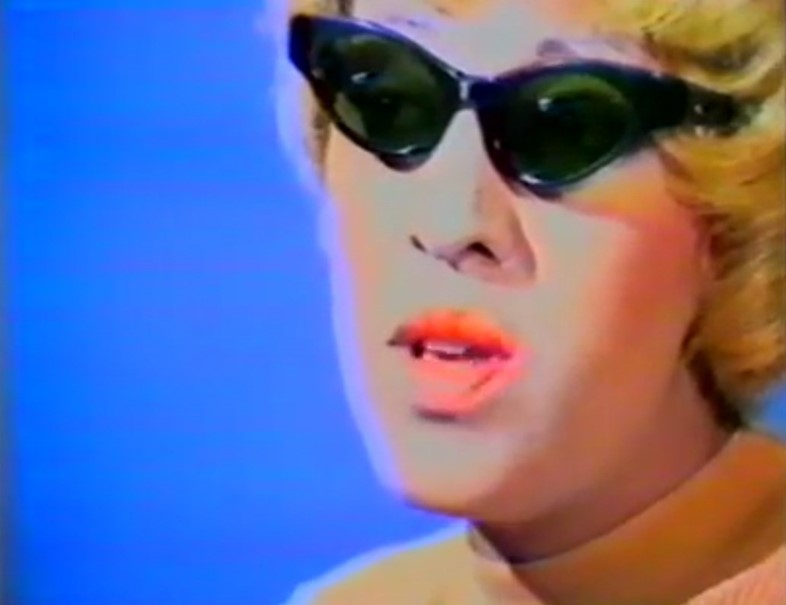
Staring into the lens and slowly binding her face with gauze, Pindell – a painter known for her themes of exploitation, violence and racism – silently transforms herself into the white person that believed people wished her to be. “Pindell’s film had so much resonance for me,” says Desai. “It’s about what it feels like to be a woman of colour working in or with institutions, and that’s something I’ve been struggling with a lot this year.” By showcasing a programme of short films which remain as poignant in our contemporary political climate as when they were first created, I Am Dora will tackle issues of race, media, youth culture and identity, raising important questions about the past and future.
The importance of the conversation around these issues is compounded for Desai by her own personal circumstances. “I am expecting a baby girl at the moment,” she explains, “and the events of the last year have left me wondering how I will relate to her. I am a Londoner, but the London I’ll bring a new person into is very different from the one I grew up in. What will both those identities mean in years from now, after Brexit, Trump et al? Will she be freer and whiter than I was at 21, or just the opposite?”
Part of the London Short Film Festival, Free White and 21 will defy its cinematic origins, instead using the phrase as a means of challenging conformity and questioning identity. “I wanted to create a mixed space; not just women, not just men, not just brown or black,” says Desai. “In an increasingly divided political climate where call-out culture is still going strong, it felt important to me to create a space that reflected the London that I know and want to protect.” The highlights from the resulting programme are brilliantly diverse, each offering a distinct visual manifestation of the corresponding filmmakers’ questions, protests and celebrations; here, we look at three of them.
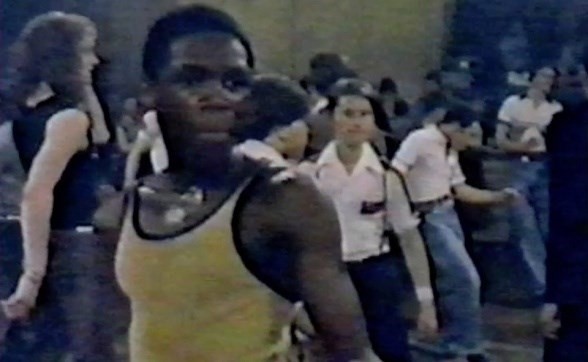
1. Fiorucci Made Me Hardcore, 1999, directed by Mark Leckey
Turner prize-winning artist Mark Leckey, whose teen years were spent in northern England during the 1980s, created Fiorucci Made Me Hardcore as an homage to Britain’s rave and clubbing culture. In it, white noise syncs perfectly to grainy footage of northern soul nights, lithe teenagers in corduroy and later bucket hats and dungarees swigging from water bottles. They move in a euphoric state, Leckey pausing on young faces frozen in elation. It’s been praised as one of the best representations of clubbing as a need and not a luxury, a mentality that today seems lost as the scene struggles to stay afloat.
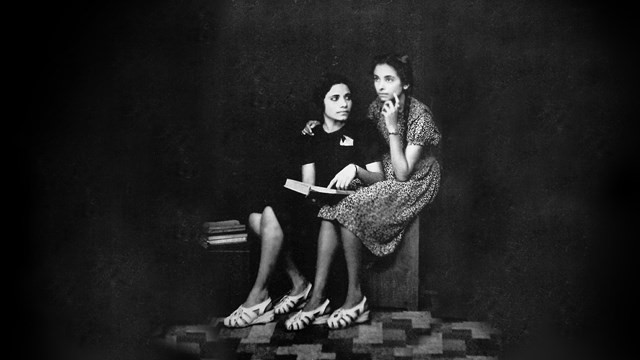
2. Latifah and Himli’s Nomadic Uncle, 1992, directed by Alnoor Dewshi
“This is one of my favourite short films for so many reasons,” says Desai of this black and white short. “The girls’ puffer jackets and hair, contrasting with the simplicity of them walking around London and the richness of their conversation. It’s a film that confirms the richness of my identity as a city girl with immie parents, and the fact that often the city is a more magical place through the eyes of outsiders.”
“I felt there was a gap in the market for films about Asian girls with big hair,” explains filmmaker Alnoor Dewshi. “Also it’s an alternative perspective on the debate about cultural identities raging in the 90s. ‘Where I come from, we don’t worry about where we come from’ sums it up! Nomadic culture is portable. They scorn settlement, occupy space, and move on when they need or choose to.”
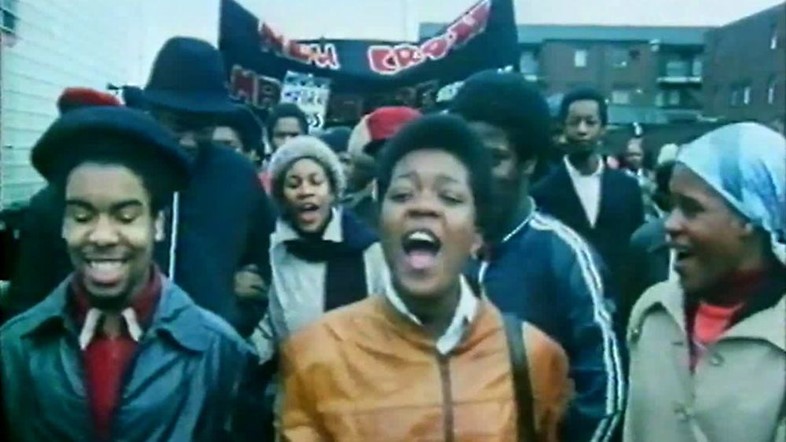
3. Blood Ah Goh Run, 1982, directed by Imruh Caesar and Menelik Shabazz
In January 1981 a housefire broke out at a joint birthday party in New Cross, claiming 13 black lives and igniting a series of marches and demonstrations across London. The incident, widely believed to be racially motivated, and the ongoing police brutality that black Londoners faced at the time, is the focus of Blood Ah Goh Run, a devastating short made a year after the tragedy, comprised of news footage, protest anthems and interviews. “This is the beginning, not the end,” says a hopeful activist into the camera. “It has so much resonance with Black Lives Matter and the context of our own London Riots and our increasingly divisive media,” adds Desai.
I Am Dora Presents: Free, White & 21, which takes place on January 11, 2017 at the ICA London. The London Short Film Festival runs from January 6–15, 2017.
